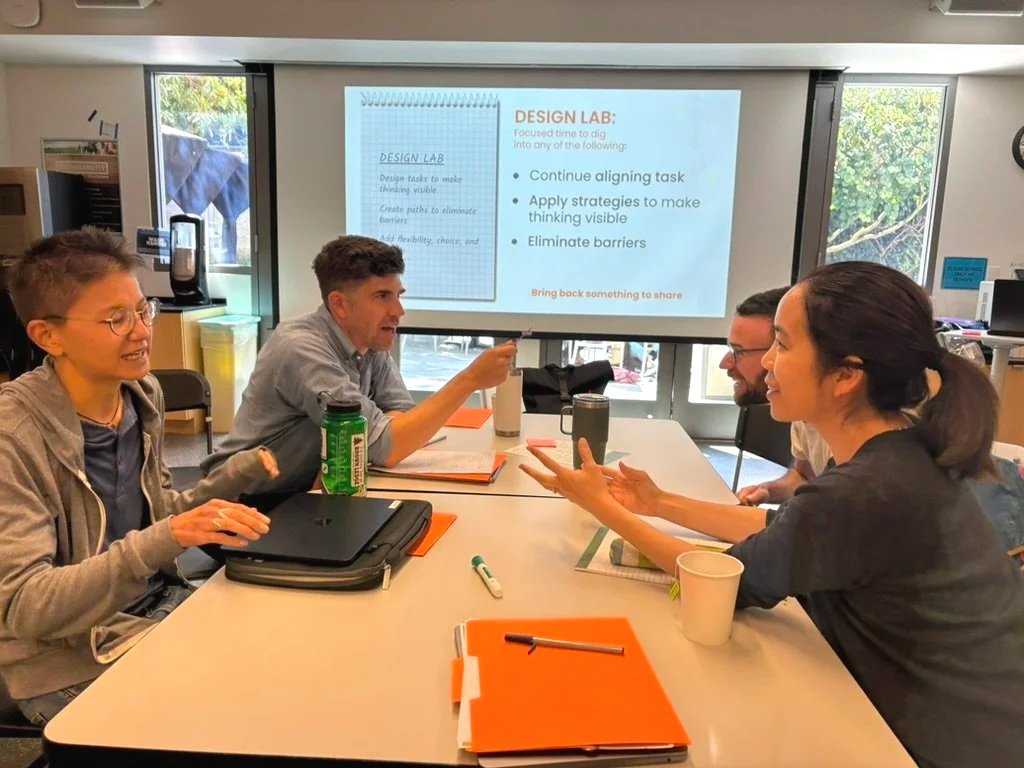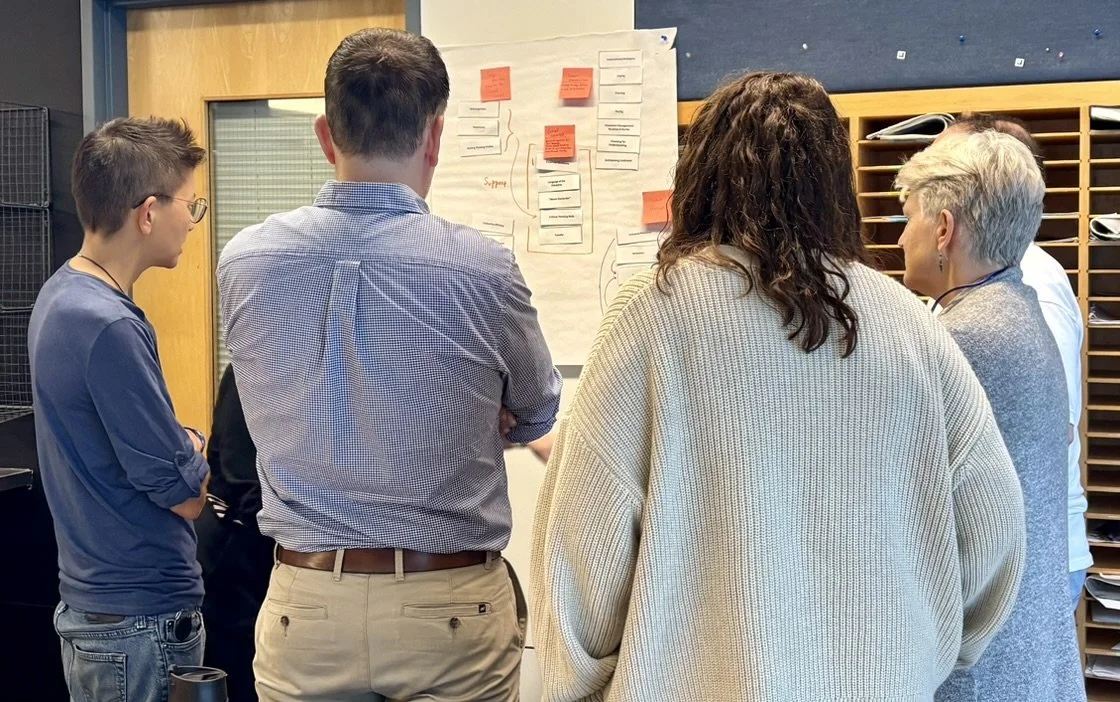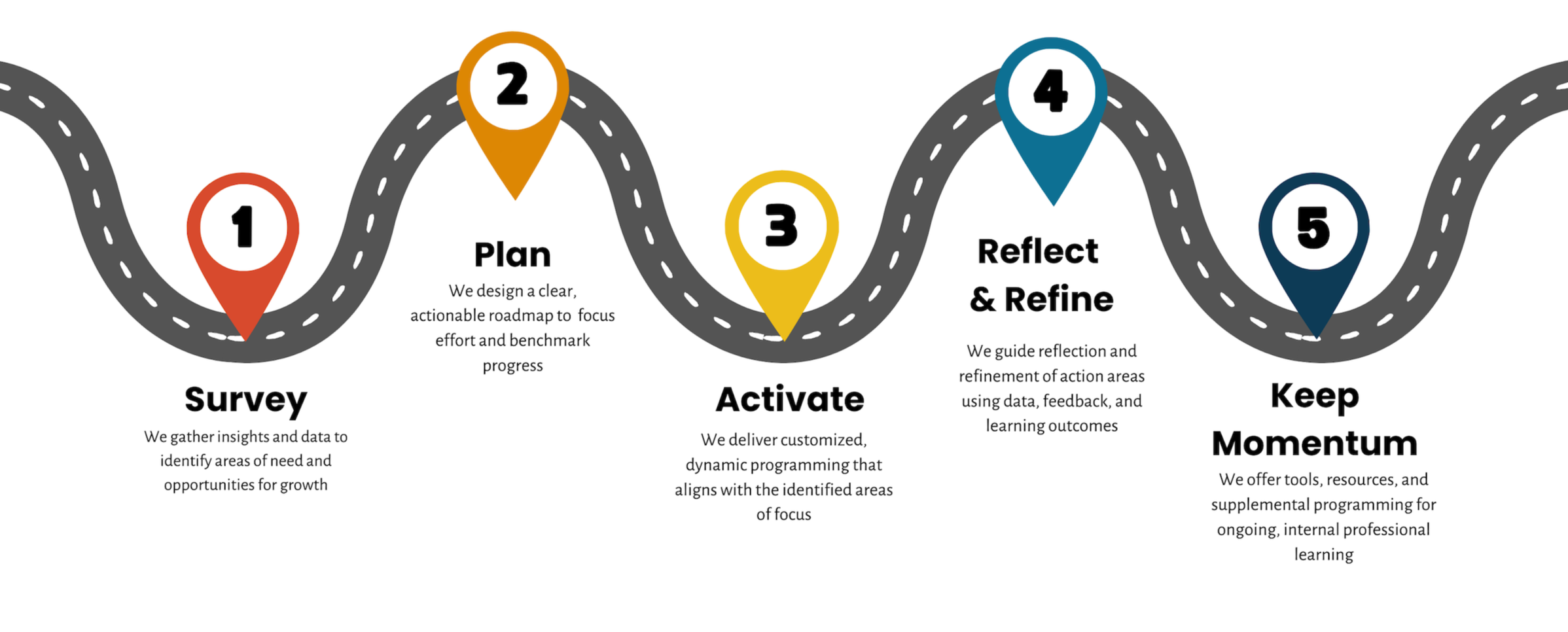Spark Sustainable Change
Spark’s programming is built on an interactive Strategy Lab model that is research-based, high-impact and designed to move learning into action. Focus areas include:
-
These customizable sessions help teachers refresh and expand their instructional toolkit with practical strategies that work across subjects and grade levels. We’ll revisit the heart of the Instructional Core and explore what high-impact teaching looks like in action. Each session is tailored to meet your school’s specific priorities, including focus areas like:
Strengthening the Pedagogical Core: Use “No Secrets” intentional teaching moves to make purpose, process, and thinking skills visible. Frame for learners what they’re learning, why it matters, and how to get there. Embed instructional routines that promote clarity, engagement, and student agency.
Making Thinking Visible: Drawing from Harvard’s Project Zero and John Hattie’s Visible Learning research, use high-impact, powerful thinking routines to help students become more reflective, analytical, and self-driven.
Aligning Learning Goals, Assessments, & Feedback: Unpack what makes a learning goal meaningful and design assessments that truly measure what matters. Explore ways to make feedback timely, targeted, and useful, so students can grow and take ownership of their learning.
Creating a Student-Centered Classroom: Build classrooms where students develop and apply future-focused skills like collaboration, creativity, critical thinking, and communication through explicit instruction, meaningful practice, assessment, and reflection.
Executive Functioning in Action: Translate research on executive functioning and neurodiversity into proactive, practical teaching strategies to support effective learning for all students.
-
We believe schools thrive when educators share a common language for what great teaching looks like. We help teams define teaching and learning excellence, then bring it to life through instructional rounds that strengthen culture, sharpen practice, and sustain growth.
Build a shared lexicon so teachers can describe, analyze, and elevate practice with clarity
Strengthen the instructional core to boost efficacy and impact in every classroom
Create cultures of growth by embedding instructional rounds and other systems that make continuous improvement sustainable
-
In this session, participants will explore the core principles of Universal Design for Learning (UDL) and how to apply them across grade levels and content areas. We focus on practical, low-lift strategies you can implement right away, as well as larger design shifts for long-term impact. The “+” means we’ll also connect UDL to other high-leverage frameworks like Differentiated Instruction, SEL practices, Instructional Core, and Research for Better Teaching. You'll leave with tools, templates, and ideas to make learning more accessible, engaging, and equitable for all students. Create inclusive, engaging learning environments that honor the full range of student identities, strengths, and needs. This session is designed for both beginning and experienced educators looking to deepen their practice.
-
We emphasize the Vision in SuperVision because it provides a powerful lens for seeing, understanding, and supporting teacher growth. The most effective systems are transparent, sustainable, and growth-focused—designed to expand instructional repertoire and elevate student learning. We help schools build high-impact, time-efficient SuperVision practices that drive meaningful professional growth. From low-stakes pop-ins to asset-based observations, we equip instructional leaders with the skills and tools to observe with clarity, engage in purposeful instructional conversations, and coach teachers toward excellence.
-
Talking about Learning Management Systems is rarely anyone’s idea of a good time—so let us help you make the most of Canvas. As a Canvas Certified educator and pedagogy expert, we’ll share strategies and collaborate with you to build and maintain courses that are both effective and engaging. Our goal is to support the excellent teaching you're already doing, helping you get the most out of Canvas to make your work easier and more impactful.



